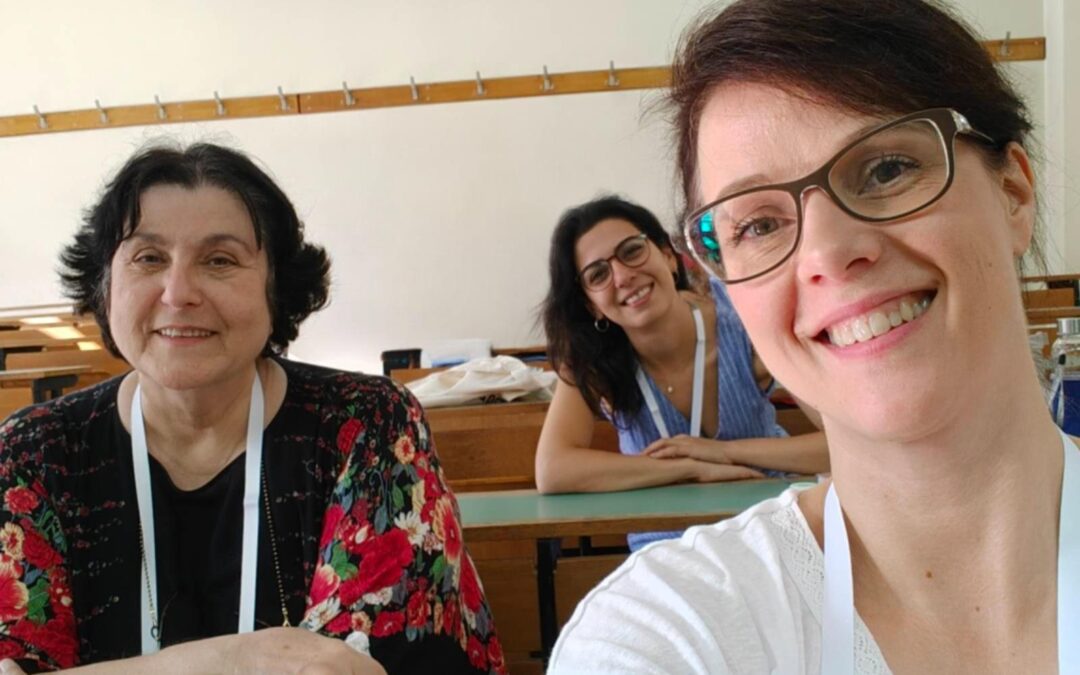ECER 2025: Reflections from the AECED Project
The European Educational Research Association (EERA) organised the ECER 2025 Annual Event in Belgrade, Serbia, under the theme “Charting the Way Forward: Education, Research, Potentials and Perspectives”. The event featured six keynote speakers from different universities and different workshops and networking events. As part of this event, AECED colleagues led three research workshops with sister project partners Democrat and Critical Change Lab led workshops and shared multi-cross case analysis strategies in qualitative research.
In order to achieve this, members of the AECED team first organised the three research workshops with our sister project partners in order to inform and progress our policy recommendations. These research workshops were organised as participatory events and took around 4 months to bring together.
This blog post comprises reflections from the AECED team at Belgrade, with regard to aspects of the event including overall context, atmosphere, workshops and presentations, partnership, impact and personal experience. Please read on.
________________
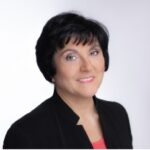
Opening / Context – reflections from Karine Oganisjana of AECED Latvia
What was the focus of the AECED team’s contribution to ECER 2025 in Belgrade?
At ECER 2025, the AECED team aimed not just to present and discuss our research findings, as is typical at such events, but also to use the occasion to meet colleagues from our sister projects – Democrat and Critical Change Lab, and explore ways to collaborate. While some of us had met at the Tallinn conference, others were meeting for the first time.
How did AECED collaborate with our sister projects, Democrat and Critical Change Lab, during the conference?
Everything began the evening before the conference officially opened. Susanne Weber invited representatives of the three sister projects who were available to join a shared dinner. That informal gathering held in a partly open-roof restaurant filled with eclectic artworks created a warm, trust-building atmosphere where people opened up and parted as friends.
It worked out well. Over the following days, we were ready not only to present our project findings but also to engage in joint analysis and work on pressing questions together in group work. As co-chair of the session “ReNEWing Education for Democracy: Voicing Youth,” I organized a discussion with Laura Malinverni of the University of Barcelona, who presented the key findings of Critical Change Lab (CCL). Drawing on her slides and the abstract uploaded to the conference system, I prepared a comparative analysis of their project through the AECED lens, highlighting commonalities and differences. Both projects employ participatory action research; CCL emphasizes arts-based learning, while AECED focuses on aesthetic and embodied learning for democracy. Both produce practical outputs – a Teacher Handbook (in CCL) and a Pedagogical Framework and Guide (in AECED). At the same time, there are important distinctions: AECED centers on the aesthetic and embodied dimensions of learning, whereas CCL concentrates on the cognitive dimension only, proposing alternative future visions to address eco-social problems through critical thinking. These differences complement each other and may play an enriching role in future collaboration.
What was the atmosphere of ECER 2025 like – did you notice any themes or concerns that connected across the sessions?
The atmosphere at ECER 2025 matched a conference that brought together thousands of engaged education researchers from around the world. Because the University of Belgrade is in the city centre, we had the flexibility to attend the sessions that interested us most and still enjoy walks during lunch breaks.
A distinctive aspect of this year’s conference was that it coincided with peaceful student protests calling for reforms. It felt like democracy in practice. The slogans were mainly in Cyrillic, which I could follow because I know Russian. I also took time to study the messages and signs on the walls of the Faculty of Philosophy, where our sessions were held, and on the building opposite. I spoke with student volunteers supporting the conference to better understand their perspectives. They voiced broad civic priorities familiar in many contexts: combating corruption, transparent and accountable governance, access to free higher education, and more.
As I left Serbia, I wished the students and the wider community peace, harmony, and mutual understanding.
________________
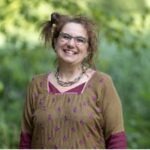
Workshops and Presentations – Susanne Weber of AECED Germany
You co-led workshops on multi-cross case analysis in qualitative research. Could you briefly explain what that involved?
We organized a trilogy of symposia on research methodologies. In the first one, we focused on aesthetic and embodied approaches in research methodologies, especially data gathering. This first workshop addressed dance as an approach to research as well as participatory autoethnographic and collective ethnography approaches.
The second symposium focused on integrating objects and relating to them as “companions” in research processes, as well the relational aspects to stakeholders and how to use intervention methods as research approaches.
The third symposium focused on data analysis and discussed the questions of dealing with complexity in international, complex, multi-case-trialling participatory action research (PAR) approaches.
The trilogy offered a broad range of approaches used, experiences made and questions to be raised. A common theme for all was the relational approach to settings, stakeholders and transformational potentials of organizations and regional networks. Especially the world of PAR needs a lot of researcher reflexivity to really cocreate, really be aware of power-dimensions, really take care of dialogical settings and ensure relational wellbeing as well as change and research-outcomes.
How does this analytical approach help deepen understanding of aesthetic and embodied learning for democracy?
Participatory Action Research (PAR) approaches foster reflexivity – not only as an individual researcher’s practice, but as a collective process of reflection that brings out the many dimensions of research and intervention quality. Supporting reflexivity, especially in relation to the process quality of research, enables democracy to become not merely a normative claim but a lived practice within both research and intervention. It nurtures individual, collective, and organisational learning, and research that is accommodates both the acceptive and transformative gaze toward the shared process of co-creation.
What kind of response or engagement did you receive from participants in your sessions?
People actively participated and co-reflected on the potentials, challenges and shortcomings of the approaches presented and suggested. They discussed the applicability, the way, these specific approaches bring about realities and the quality of data produced. They involved in co-creating alternatives and variations of approaches taken and outlined future possibilities for research designs, data gathering and data analysis as well as collective cocreation in research.
Were there any particular moments or questions that stood out during your presentation?
We were intensely reflecting on the tensions between different research epistemologies, ontologies and methodologies and the different paths they bring about. We reflected on the difference between reporting and research and the potentials of deepening the quality of research results by connecting to the deep qualitative quality of our research material. We reflected on how to ensure relevance of research for transformation and how to connect to sensemaking and usability for the field instead of formal requirements only. We highlighted the need to strengthen the connectivity to the given cultural setting by using vignettes, which are “thick descriptions”, as Clifford Geertz would put it – exactly what is needed in order to make users of research and transformational methods understand the essence of the experience and situations observed and condensed in such “thick descriptions”. We highlighted that any project on democratisation has to take into account, that democratisation is relevant for transforming power-relations, which often remains unaddressed. In order not to necessarily pedagogise democracy, but to perhaps democratise pedagogy, we need to take into account the political as well as artistic dimension.
Just as Paulo Freire said: The pedagogue at the same time is – and needs to be – politician and artist.
________________
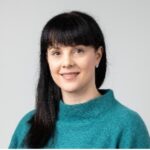
Partnership and Learning – reflections from Pauliina Jääskeläinen of AECED Finland
How did working alongside Democrat and Critical Change Lab enrich AECED’s contribution?
It became evident how our contribution relates to the micro-level relational aspects of how democracy is an experiential and embodied phenomenon. We got to discuss embodied methods in research and embodied pedagogies, and it was interesting to share some aspects of our data analysis with sister project representatives. Our focus is on bottom-up transformation, while other sister projects have perhaps more meso- and macro-level perspectives on democracy in education. From my perspective, our projects complement each other nicely with their different views.
Were there shared challenges or insights that emerged across the three projects?
Some major challenges seemed to relate to project dynamics and their short time span. It was discussed how slow any transformation process is, and therefore, the emphasis on planting the seeds of transformation is what can realistically be achieved in three-year projects. It was also worrying how the findings, results and outcomes would continue their life after the projects have ended.
Did the collaboration suggest any future directions or shared opportunities for research or practice?
Listening to sister projects’ presentations made me think more about how the will plays an important role in the successful application of the outcomes of the project. Will to explore new possible ways of thinking and acting, will to throw oneself into new pedagogies and will to work towards more democratic learning. One future research area could be to research the origins of this will, how to facilitate will and overcome barriers that might prevent attending to projects that want to research democracy in education.
________________
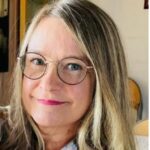
Impact and Takeaways – reflections from Susan Meriläinen of AECED Finland
What do you think attendees took away from these sessions?
I think attendees probably came away with a clearer sense of democracy as something we live and experience, that it’s not just about politics, but something that needs to be nurtured everyday, especially in education and in the places where we learn and work together. Hopefully, many left with the idea that working together, reflecting deeply, and involving both educators and learners are really important for rethinking how democratic values actually happen in classrooms, teacher training, school development, and even in informal spaces where young people explore democracy in their everyday lives.
Did ECER 2025 influence how you think about AECED’s future dissemination or the use of its Framework and Guides?
Yes, ECER 2025 and especially the conversations with sister projects during and outside the sessions really opened my eyes to just how much potential there is for spreading AECED’s work. The discussions, both formal and informal, made me realize that the opportunities to make an impact go far beyond the national level, they extend across Europe into different education and policy spaces. This has definitely encouraged me to think more strategically about how to share AECED’s Framework and Guides moving forward, particularly by building partnerships and connecting with stakeholders at multiple levels to promote aesthetic and embodied learning for democracy more widely.
How do you see the discussions at ECER connecting to the wider European agenda for education and democracy?
The discussions at ECER really highlighted how much the work aligns with the broader European agenda on education and democracy. There was a strong focus on making democracy inclusive, hands-on, and something you actively live and practice, not just learn about as theory. What really stood out was the shared understanding that democracy needs to be part of everyday life in schools, universities, and other learning spaces, not just something taught as facts. The sessions showed a clear shift toward recognizing these places as key sites for bringing democracy to life, which fits well with Europe’s goals around resilience, social connection, and empowering learners. Overall, ECER created a great space where research, policy, and practice came together to push forward a more practical and connected approach to democracy in education.
________________
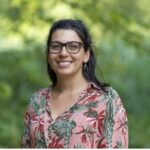
Reflection and Personal Experience – reflections from Kardelen Cazgir of AECED Germany
On a personal note, what was the highlight of the conference for you?
The informal gatherings and dinner conversations, both before ECER and after the sessions, added a personal dimension, inspiring new ideas and helping me get to know colleagues in a relaxed and welcoming atmosphere. As a young researcher, experiencing this collaborative environment was both motivating and energising.
What did you learn – either academically or practically – that you’ll take back into your work with AECED?
The week in Belgrade was full of insights into the promises and challenges of education for democracy. In discussions with our sister projects and fellow researchers at ECER revealed shared intentions across Europe to advance this topic, yet we also identified obstacles that need to be addressed. Practically, these conversations highlighted the value of collaborative approaches and engaging with both academic and practitioner communities. I look forward to bringing these insights back to AECED to strengthen our ongoing work and explore new ways to collaborate across projects and communities of practice.
If you could summarise AECED’s presence at ECER 2025 in one sentence, what would it be?
AECED’s presence at ECER 2025 highlighted a collaborative, research-driven effort to explore education for democracy within and beyond the European research community.
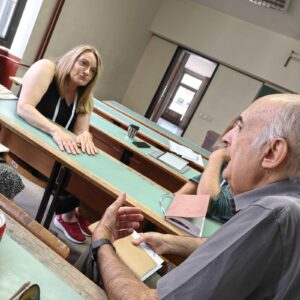
Blog introduced by Philippa Mulberry of AECED UK, with contributions written by Karine Oganisjana of AECED Latvia, Susanne Weber of AECED Germany, Pauliina Jääskeläinen of AECED Finland, Susan Meriläinen of AECED Finland, Kardelen Cazgir of AECED Germany
#Education4Democracy

